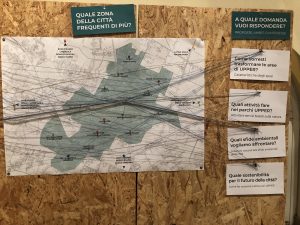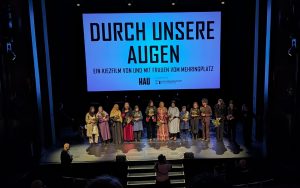After due to technical reasons at the hosting venue we had to postpone the event planned in September, the new dates for Who Owns Kreuzberg: mapping spaces of creativity and resistance are established. The workshop will take place at the FXHB Museum on November 11, 18 and 25 at 2pm.
Interested in taking part? Please fill the registration form online.
Nachdem wir aus technischen Gründen am Veranstaltungsort den Workshop „Wem gehört Kreuzberg? Mapping von Räumen der Kreativität und des Widerstands“ nicht im September durchführen konnten, stehen nun die neuen Termine fest: Am 11., 18. und 25. November um 14 Uhr im FXHB Museum.
Interesse teilzunehmen? Bitte füllen Sie hierfür das Anmeldeformular online aus.

